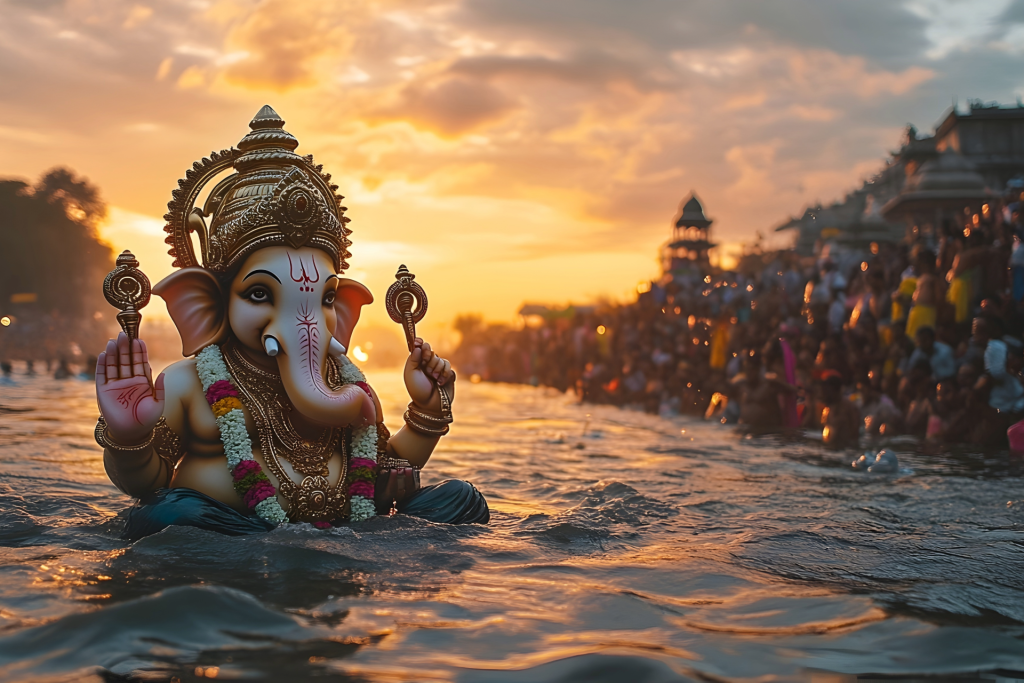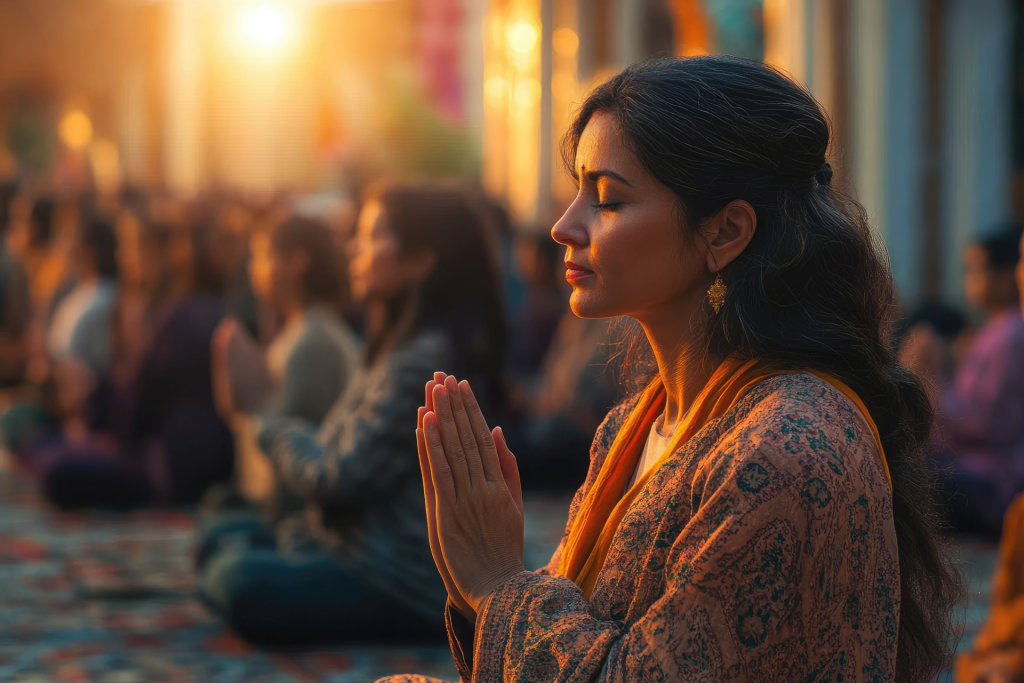Unveiling the Depths of Hinduism: A Conversation with Dr. Sibesh Chandra Bhattacharya
**Unveiling the Depths of Hinduism: A Conversation with Dr. Sibesh Chandra Bhattacharya**
Hinduism, often regarded as one of the world’s oldest living religions, embodies a complex and rich tapestry of beliefs, practices, philosophies, and cultural traditions. Its vastness and diversity have fascinated scholars, practitioners, and observers for centuries. To gain a deeper understanding of this intricate faith, we turn to Dr. Sibesh Chandra Bhattacharya, a distinguished historian and scholar whose academic journey spans over six decades. His extensive research on Indian history, culture, and philosophy provides invaluable insights into the origins, evolution, and contemporary relevance of Hinduism.
# Introduction: Exploring the Rich Tapestry of Hinduism
Hinduism defies simple categorization. Unlike many world religions founded by a single prophet or centered around a specific scripture, Hinduism is a sprawling, pluralistic tradition that has evolved over millennia. Its origins are shrouded in antiquity, with no definitive starting point, no singular founder, and no universally accepted sacred text. This fluidity has allowed Hinduism to adapt seamlessly to changing historical contexts, making it a resilient and dynamic spiritual tradition.
The religion encompasses a broad spectrum of beliefs—from monotheism and polytheism to pantheism and atheism—reflecting the diverse philosophical schools and regional practices across India and beyond. Its core principles emphasize Dharma (righteousness), Karma (action and consequence), Moksha (liberation), and the pursuit of spiritual knowledge. Festivals like Diwali, Holi, and Navaratri are celebrated with fervor, illustrating the vibrant cultural life intertwined with religious practice.
Hinduism’s influence extends beyond India, impacting global spiritual movements and philosophical thought. Its emphasis on personal spiritual experience, tolerance, and philosophical inquiry has made it a significant force in shaping contemporary discussions on spirituality and ethics. As Dr. Bhattacharya notes, “Hinduism is not merely a religion but a way of life, a vast ocean of spiritual and cultural expressions that have persisted through ages.”
# Meet Dr. Sibesh Chandra Bhattacharya: A Scholar’s Journey
Born in 1937 in Kolkata, Dr. Bhattacharya’s academic pursuits have been deeply rooted in Indian history and culture. His scholarly journey began with a Master’s degree in Ancient History from Allahabad University, followed by a Ph.D. focusing on Indian socio-economic history and archaeology. His dedication to understanding India’s past has led him to explore themes such as social mobility, power dynamics, and cultural philosophy.
Throughout his career, Dr. Bhattacharya has held prestigious positions, including serving as Professor and Head of the Department of History at Allahabad University. His international fellowships, notably with the British Council at SOAS in London, have broadened his perspective, allowing him to engage with global scholars and deepen his understanding of Indian civilization.
His research interests are diverse yet interconnected. He has extensively studied early Indian society, the Harappan civilization, and the philosophical underpinnings of Hinduism. His translations of Rabindranath Tagore’s political essays have made significant contributions to making India’s intellectual heritage accessible to a global audience. Dr. Bhattacharya emphasizes that “understanding our history is essential to appreciating the depth and resilience of Hinduism.”
His work has also influenced academic policy and cultural preservation initiatives, reflecting his commitment to safeguarding India’s rich heritage. Now retired, he continues to inspire students and scholars through his writings and lectures, emphasizing that “Hinduism’s strength lies in its capacity to evolve while remaining rooted in its profound philosophical core.”
# The Origins and Evolution of Hinduism
Hinduism’s origins are as ancient as human civilization itself, with roots extending back over 4,000 years. Its earliest manifestations are found in the archaeological remains of the Harappan civilization, which flourished around 3300 BCE. These sites reveal early religious practices that hint at the worship of nature, sacred trees, water, and proto-Shiva figures, indicating a pantheistic worldview.

The transition from the Harappan to Vedic periods marks a significant phase in Hindu development. The Vedic texts, composed around 1500 BCE, form the foundation of classical Hindu thought. These texts, primarily hymns and ritual instructions, reflect a society engaged in elaborate sacrifices and worship of numerous deities like Indra, Agni, and Soma. The Vedic religion was polytheistic but also contained elements of henotheism—worship of one deity as supreme at a given time.
Over centuries, Hinduism absorbed various cultural influences, including Dravidian, Aryan, and later Buddhist and Jain traditions. The Upanishads, composed around 800-400 BCE, introduced profound philosophical ideas about the nature of reality, the self (Atman), and the ultimate principle (Brahman). This period marked a shift from ritualistic practices to introspective spiritual inquiry.
The medieval period saw the rise of devotional movements (Bhakti), emphasizing personal love for deities like Vishnu, Shiva, and Devi. These movements democratized spiritual access, moving away from priestly dominance and ritual complexity. The advent of classical texts like the Bhagavad Gita, Ramayana, and Mahabharata further enriched Hindu thought, blending mythology, ethics, and philosophy.
Modern Hinduism continues to evolve, engaging with contemporary issues such as social reform, globalization, and scientific understanding. Its historical journey reflects a remarkable capacity for adaptation, rooted in a philosophical core that emphasizes unity in diversity. Dr. Bhattacharya remarks, “Hinduism’s evolution is a testament to its inherent flexibility and profound philosophical depth.”
# Core Philosophies and Beliefs in Hindu Tradition
At the heart of Hinduism lie several foundational philosophies that shape its worldview. The concept of Dharma, or righteous duty, guides ethical conduct and social responsibility. Karma, the law of cause and effect, underscores the importance of actions and their consequences, influencing individual destiny and societal harmony.
Moksha, or liberation from the cycle of birth and rebirth (Samsara), is the ultimate goal for many Hindus. Achieving Moksha involves self-realization, understanding the true nature of the self (Atman), and its unity with Brahman—the supreme, unchanging reality. This pursuit is central to many philosophical schools within Hinduism, including Vedanta, Samkhya, and Yoga.
The diversity of beliefs within Hinduism is reflected in its acceptance of multiple paths to spiritual realization. The three main margas—Karma Yoga (path of action), Bhakti Yoga (path of devotion), and Jnana Yoga (path of knowledge)—offer different approaches suited to individual temperaments. This inclusivity underscores Hinduism’s recognition of personal spiritual journeys.
The notion of Dharma extends beyond individual morality to encompass social order and cosmic law. It varies according to age, caste, gender, and occupation, emphasizing a contextual understanding of righteousness. The Bhagavad Gita encapsulates this by urging individuals to perform their duties without attachment to outcomes.
Philosophically, Hinduism also advocates the idea of Tat Tvam Asi (That Thou Art), emphasizing the unity of the individual soul with the universal consciousness. This non-dualistic perspective has influenced countless spiritual traditions worldwide. As Dr. Bhattacharya explains, “Hinduism’s core philosophies promote a vision of unity amidst diversity, encouraging seekers to realize their divine nature.”
# Sacred Texts and Their Significance
Hindu sacred literature is vast and multifaceted, comprising texts that serve ritual, philosophical, poetic, and mythological purposes. The Vedas are the oldest and most authoritative scriptures, composed in archaic Sanskrit and divided into four collections: Rig, Yajur, Sama, and Atharva. They contain hymns, rituals, and philosophical insights that form the bedrock of Vedic religion.
Following the Vedas are the Brahmanas and Aranyakas, which interpret ritual practices and explore mystical ideas. The Upanishads, often regarded as the pinnacle of spiritual philosophy, delve into metaphysical questions about the nature of reality, the self, and the universe. They introduce concepts like Brahman (the ultimate reality) and Atman (the individual soul), emphasizing the unity of all existence.
The epics Ramayana and Mahabharata are monumental poetic and narrative texts that shape Hindu cultural identity. The Mahabharata, which includes the Bhagavad Gita, offers ethical dilemmas, philosophical discourses, and stories of divine heroes. The Ramayana narrates the life of Lord Rama and embodies ideals of dharma, devotion, and righteousness.
The Puranas are a vast genre of texts that recount mythological stories, genealogies of gods and kings, and religious teachings. They serve as accessible sources for popular devotion and cultural history. Texts like the Vishnu Purana and Shiva Purana are central to devotional practices.

Hinduism’s sacred texts are not merely historical documents but living guides that influence daily life, rituals, and spiritual aspirations. Their layered meanings allow for multiple interpretations, accommodating the religion’s diversity. Dr. Bhattacharya emphasizes, “These texts are the spiritual DNA of Hinduism, continuously inspiring seekers across generations.”
# Rituals, Practices, and Festivals: Living Hinduism Today
Hindu rituals are deeply embedded in daily life and community celebrations. From simple domestic pujas (worship) to elaborate temple ceremonies, these practices serve as expressions of devotion and spiritual discipline. Offerings of flowers, incense, and food are common, symbolizing purity and gratitude.
Festivals like Diwali, Holi, Navaratri, and Ganesh Chaturthi are celebrated with enthusiasm across India and the diaspora. Diwali, the festival of lights, symbolizes the victory of good over evil and is associated with Lord Rama’s return to Ayodhya. Holi, the festival of colors, celebrates spring and divine love, fostering social harmony.
Rituals also include rites of passage such as Namakarana (naming ceremony), Upanayana (sacred thread initiation), marriage, and funeral rites. These samskaras mark significant life stages and reinforce social and spiritual bonds.
Pilgrimages to sacred sites like Varanasi, Rishikesh, and Tirupati are integral to Hindu practice. Bathing in the Ganges River is believed to purify sins and facilitate spiritual progress. Temples serve as communal spaces for worship, meditation, and festivals, fostering a sense of shared identity.
In contemporary times, Hindu practices have adapted to urban lifestyles and technological advancements. Virtual pujas, online spiritual discourses, and social media platforms now facilitate global participation. Despite modernization, the core emphasis remains on personal devotion and dharma.
Hindu festivals and rituals continue to serve as vital expressions of cultural identity and spiritual aspiration. As Dr. Bhattacharya observes, “Living Hinduism today is a dynamic interplay between tradition and innovation, ensuring its relevance for future generations.”
# The Role of Deities and Mythology in Hindu Culture
Deities occupy a central place in Hindu worship and mythology. The pantheon includes gods like Vishnu, Shiva, Devi (Goddess), and numerous regional and folk deities. Each deity embodies specific aspects of the divine and caters to diverse devotional needs.
Vishnu, the preserver, is worshipped in various incarnations such as Rama and Krishna. Shiva, the destroyer and transformer, is revered through temples, lingams, and festivals like Maha Shivaratri. Devi encompasses a multitude of forms—Durga, Lakshmi, Sarasvati—representing power, prosperity, and wisdom.
Mythological stories serve as allegories for moral virtues, cosmic principles, and spiritual truths. The Ramayana and Mahabharata are epic narratives that illustrate dharma through divine heroes and moral dilemmas. Tales of gods and demons explain natural phenomena and reinforce cultural values.
The concept of Avatara (divine incarnation) underscores the belief that the divine periodically descends to restore cosmic order. This idea is central to Vaishnavism and Shaivism, influencing devotional practices and temple architecture.
Mythology also plays a role in shaping social norms and festivals. For example, Durga Puja celebrates the victory of goddess Durga over the buffalo demon Mahishasura, symbolizing the triumph of good over evil. These stories foster community bonding and cultural continuity.
Deities and mythology thus serve as vital expressions of Hindu spirituality, offering accessible symbols for divine qualities and moral ideals. Dr. Bhattacharya notes, “Mythology is the soul of Hindu culture—it connects the divine with everyday life and inspires moral conduct.”
# Contemporary Challenges and Opportunities for Hinduism
Hinduism faces numerous challenges in the modern era. Globalization, scientific advancements, and social reforms have prompted reinterpretations of traditional beliefs and practices. The caste system, once integral to social organization, faces criticism for perpetuating inequality, prompting calls for reform within the community.
Secularism and religious pluralism challenge Hindu communities to maintain their identity while respecting diversity. The rise of materialism and individualism can sometimes dilute spiritual pursuits, leading to superficial engagement with religious practices.
However, these challenges also present opportunities. The global diaspora has spread Hindu ideas worldwide, fostering intercultural dialogue and understanding. Movements like ISKCON and the Ramakrishna Mission have popularized Hindu philosophy globally, emphasizing universal values like compassion and spiritual self-realization.
Hinduism’s philosophical flexibility allows it to engage with contemporary issues such as environmental sustainability, gender equality, and social justice. The concept of Vasudhaiva Kutumbakam—the world is one family—resonates with global humanitarian efforts.
Digital platforms enable the dissemination of spiritual teachings to a broader audience. Online courses, virtual temples, and social media campaigns promote awareness and participation. These innovations can help preserve and revitalize Hindu traditions in a rapidly changing world.
Dr. Bhattacharya emphasizes that “Hinduism’s strength lies in its adaptability and its capacity to find relevance amidst modern challenges.” Its inclusive philosophy offers a framework for addressing contemporary global issues while maintaining spiritual integrity.
# Interfaith Perspectives and the Global Impact of Hinduism
Hinduism’s inclusive and pluralistic ethos has fostered respectful engagement with other faiths. Its emphasis on tolerance and dialogue has facilitated interfaith understanding, especially in multicultural societies like India and the diaspora.
Interfaith initiatives often draw upon Hindu principles of respect for diversity and spiritual pluralism. The concept of Advaita (non-dualism) encourages recognition of underlying unity beyond superficial differences. This has inspired dialogues promoting peace and mutual understanding.
Globally, Hindu ideas have influenced various spiritual movements. The mindfulness practices derived from Hindu meditation techniques have gained popularity in mental health and wellness sectors worldwide. Yoga, originating from Hindu philosophy, has become a global phenomenon, transcending religious boundaries.
Hindu contributions to philosophy, art, and literature have enriched world culture. The intricate temple architecture, classical music, dance forms like Bharatanatyam, and philosophical texts have garnered international appreciation.
Despite challenges like cultural misappropriation and misunderstandings, Hinduism’s core message of harmony and spiritual pursuit continues to resonate globally. Scholars like Dr. Bhattacharya highlight that “Hinduism’s universal values can serve as a bridge for fostering global peace and understanding.”
The global impact of Hinduism underscores its role as a spiritual tradition that advocates for unity amidst diversity. Its teachings inspire millions worldwide to pursue inner peace, ethical living, and respect for all beings.
# Concluding Insights: The Future of Hindu Spirituality
Looking ahead, the future of Hinduism appears both promising and complex. Its inherent flexibility and philosophical depth equip it to navigate the challenges of modernity while preserving its core values. The ongoing dialogue between tradition and innovation will shape its evolution.
Educational initiatives, digital outreach, and intercultural exchanges can further promote understanding and appreciation of Hinduism’s rich heritage. Emphasizing its universal principles—Dharma, Karma, Moksha—can foster a global ethos of compassion, responsibility, and spiritual growth.
The youth play a crucial role in shaping the future of Hinduism. Encouraging their engagement with traditional texts, practices, and contemporary issues can ensure the tradition remains vibrant and relevant. Initiatives that integrate scientific understanding with spiritual wisdom can bridge gaps and foster holistic development.
Interfaith dialogue and global cooperation can help address societal issues like inequality, environmental degradation, and conflict. Hinduism’s emphasis on non-violence (Ahimsa) and respect for nature offers valuable insights for sustainable living.
Dr. Bhattacharya concludes with an optimistic outlook: “Hinduism’s future depends on its ability to adapt without losing its philosophical essence. Its enduring strength lies in its capacity to inspire individuals to realize their divine potential and contribute positively to society.”
In essence, Hinduism remains a profound spiritual tradition that continues to evolve, inspire, and adapt. Its deep philosophical roots and vibrant cultural expressions ensure that it will remain a vital force in shaping human consciousness for generations to come.

















